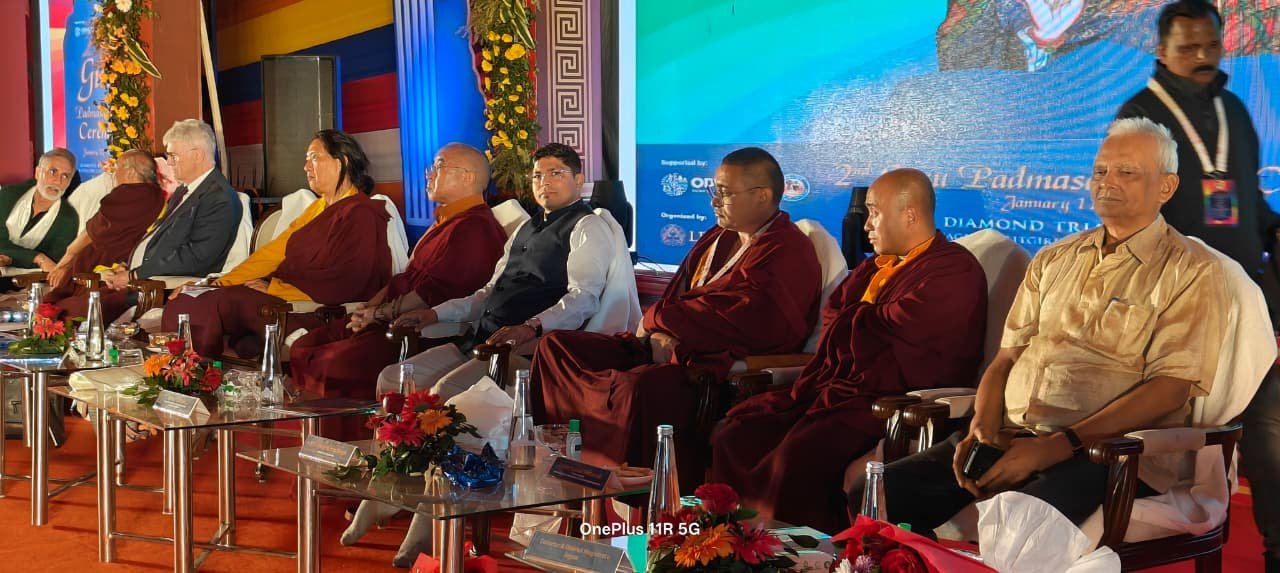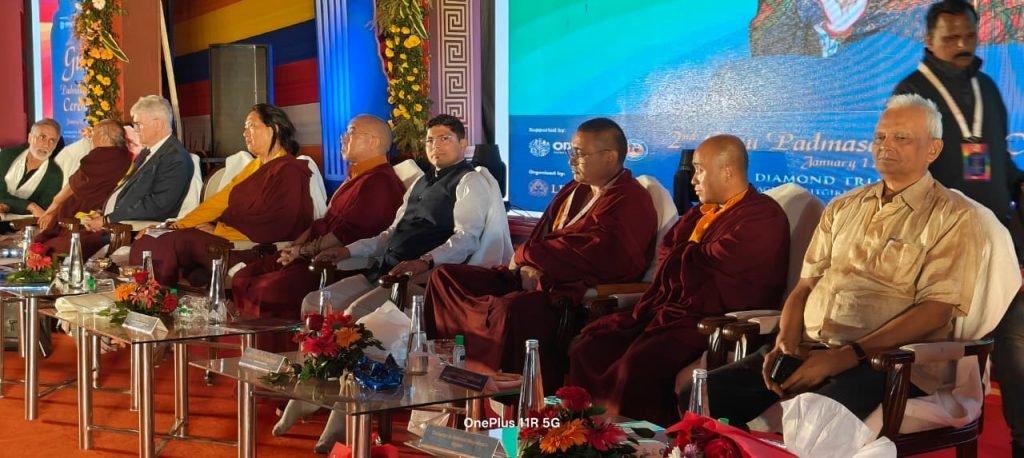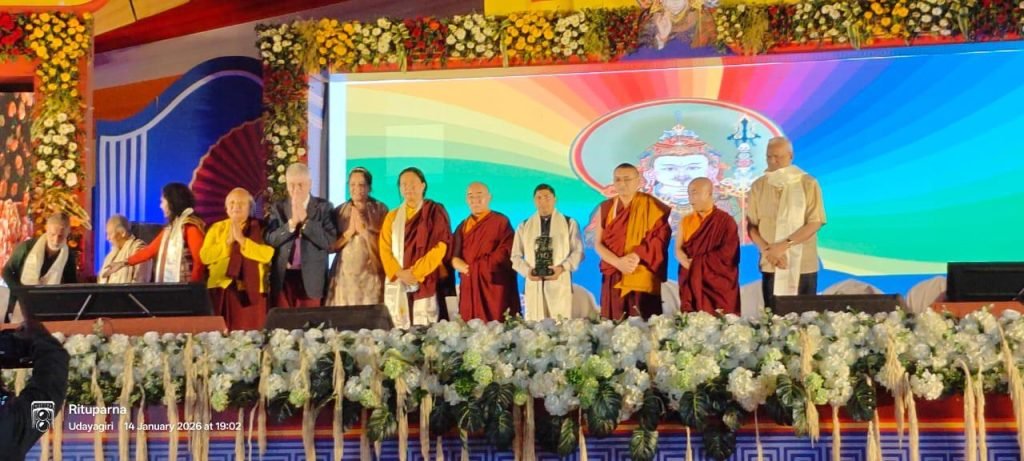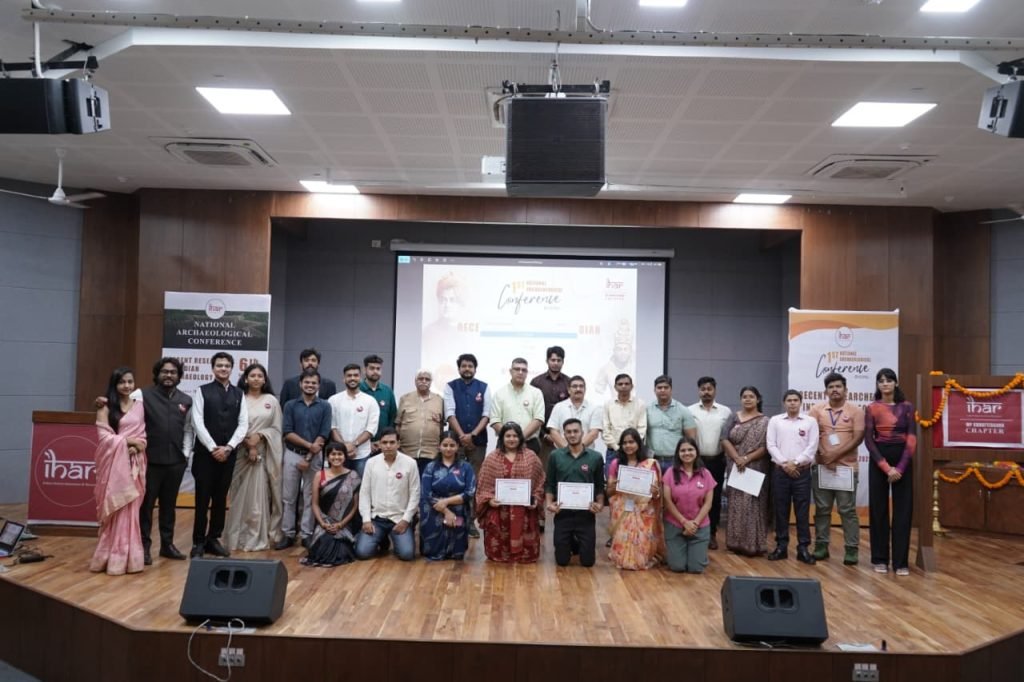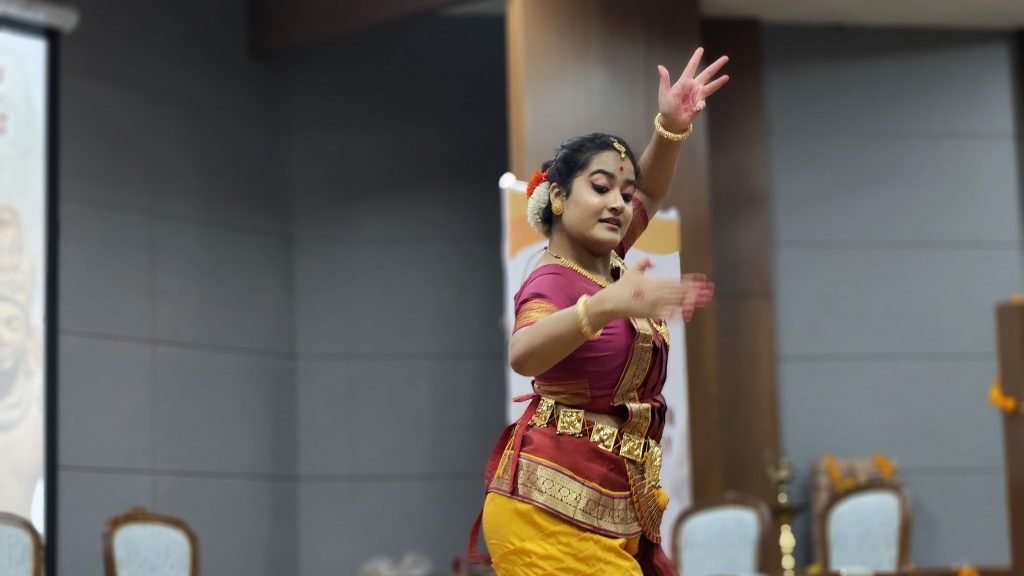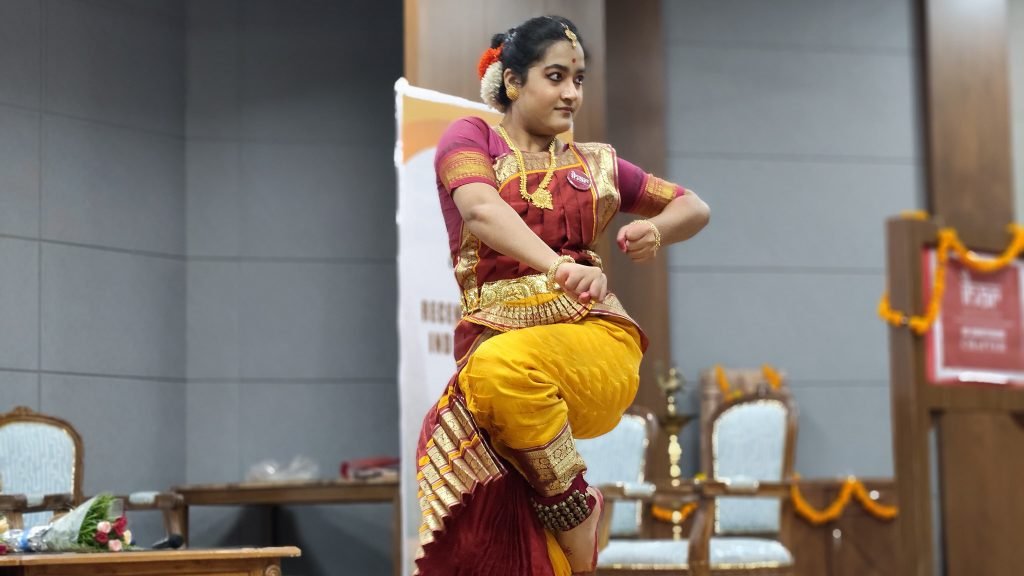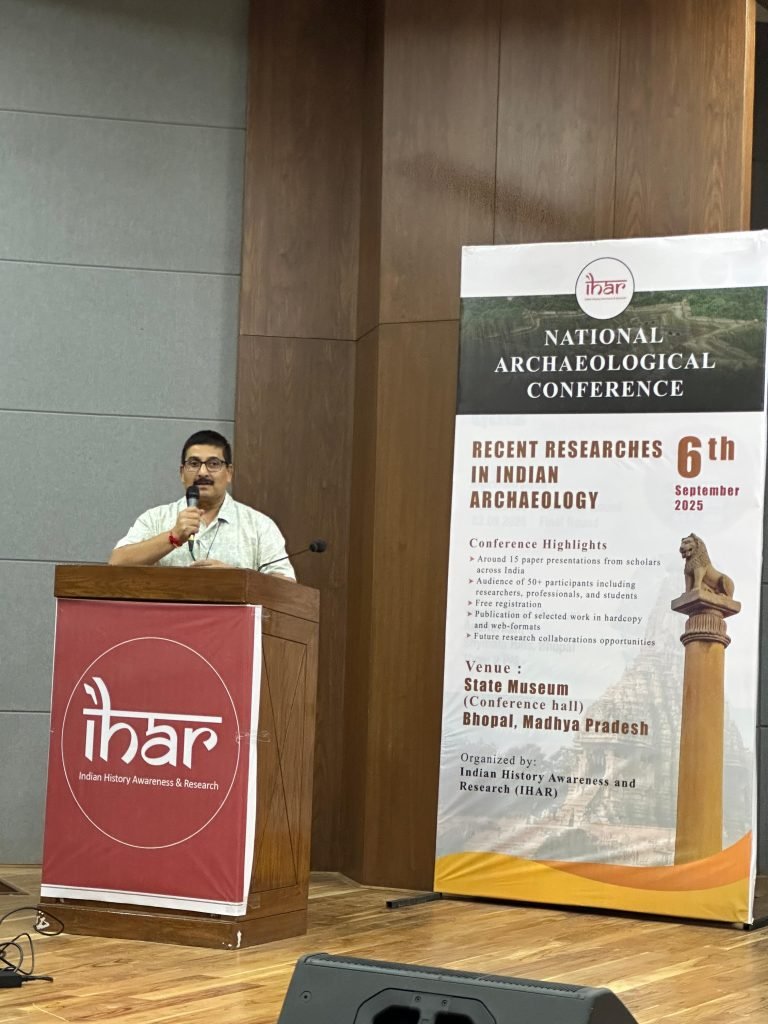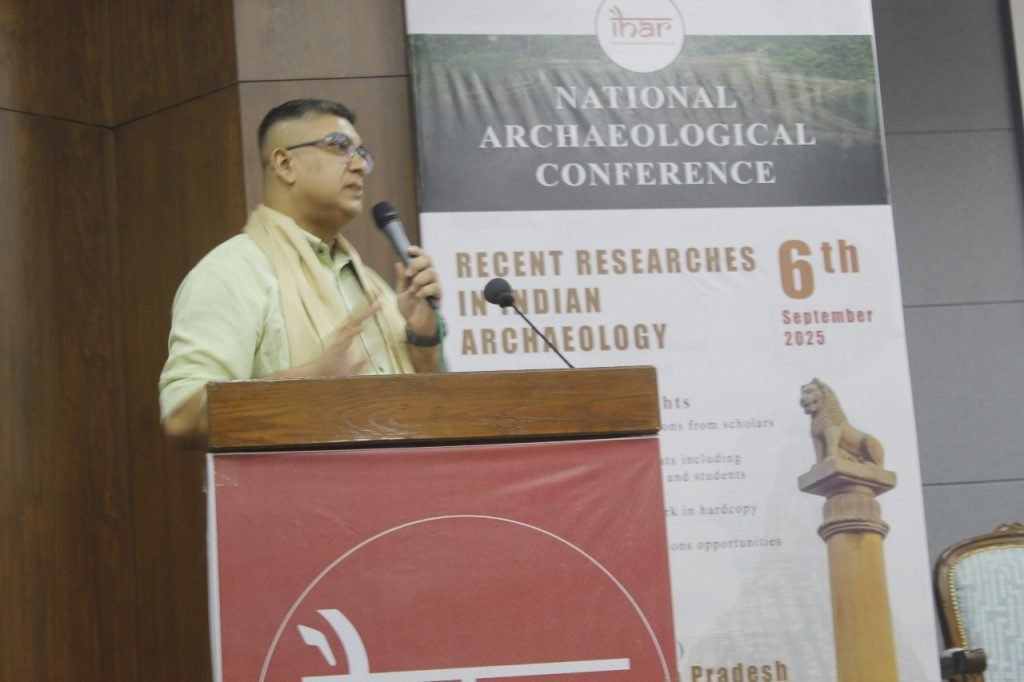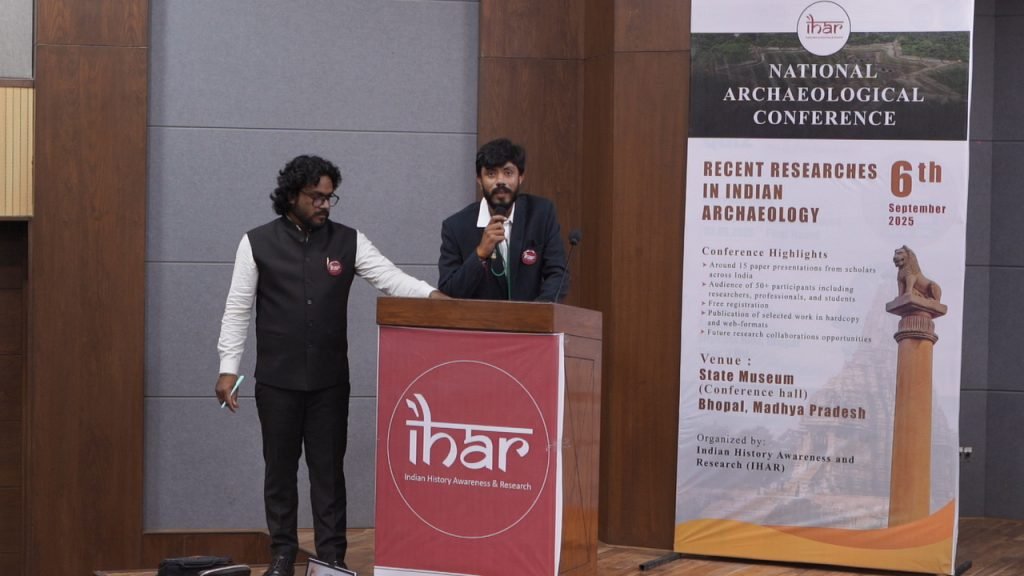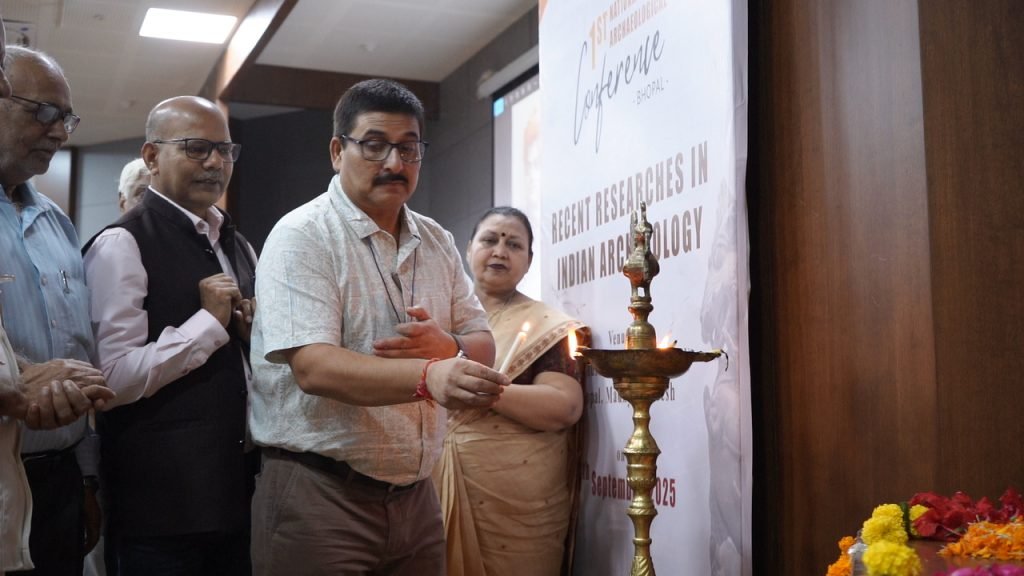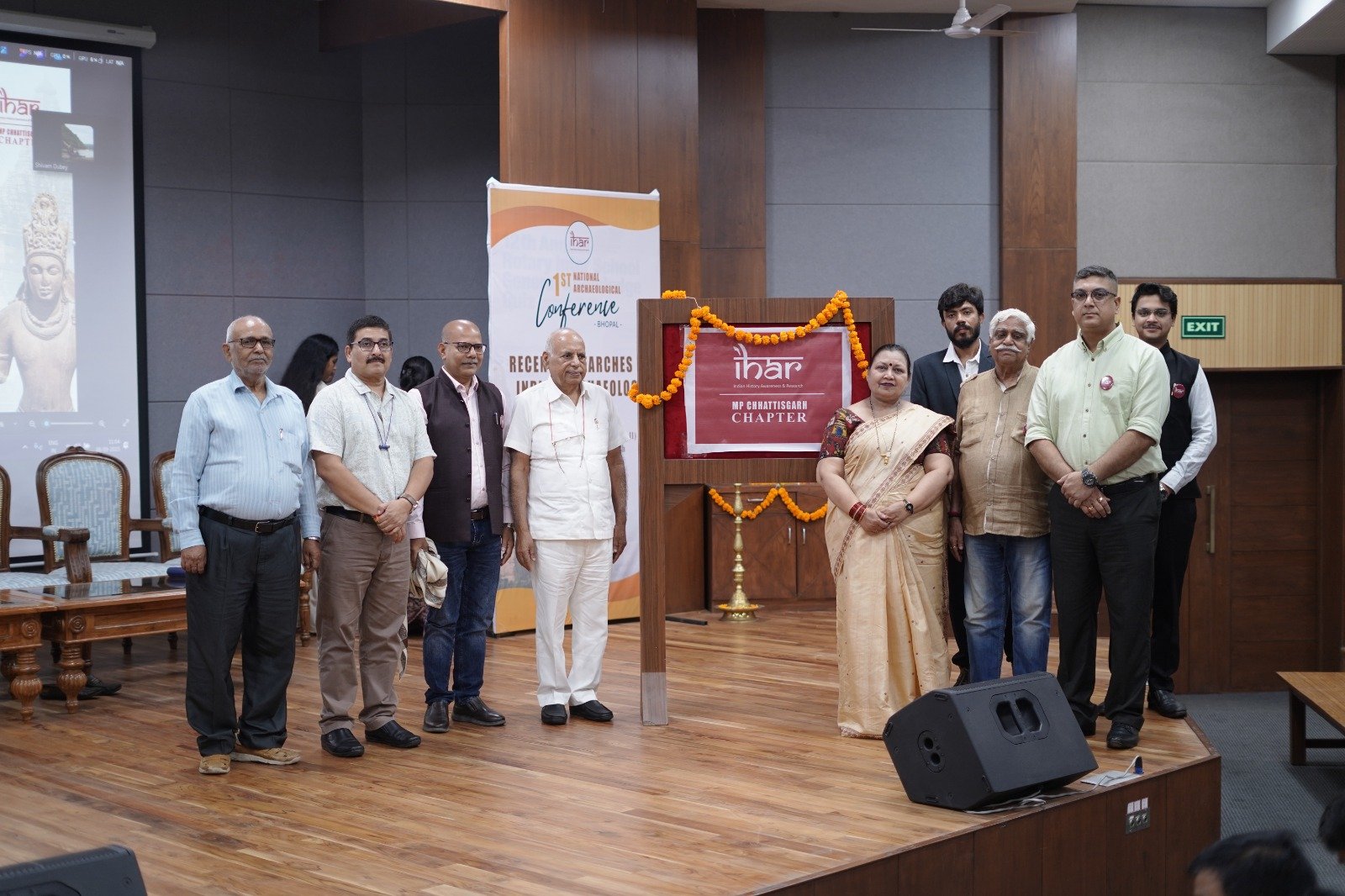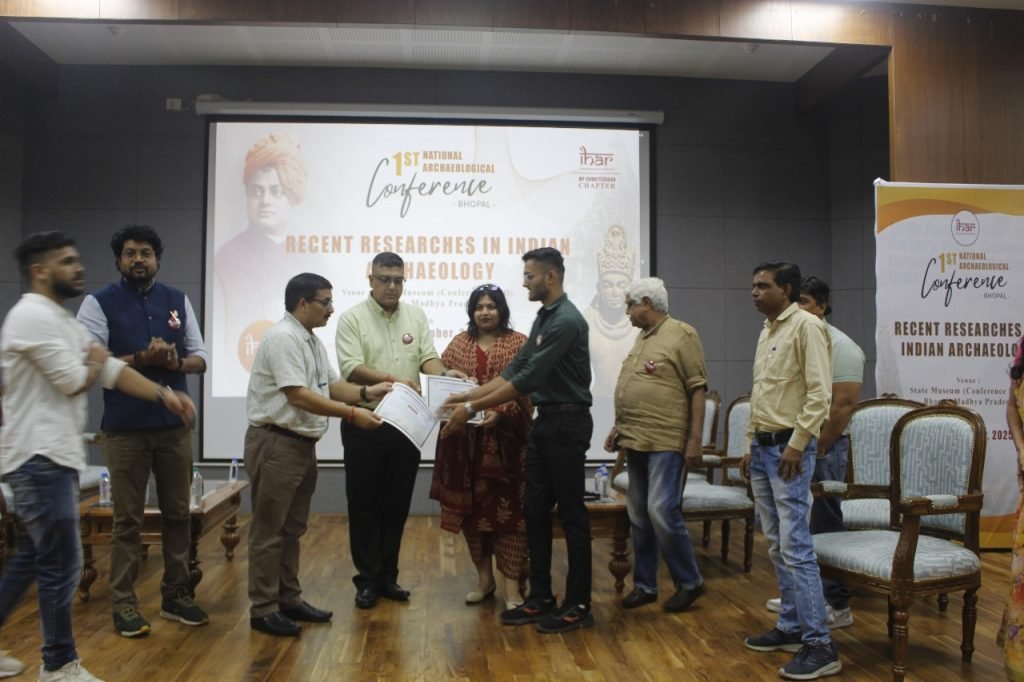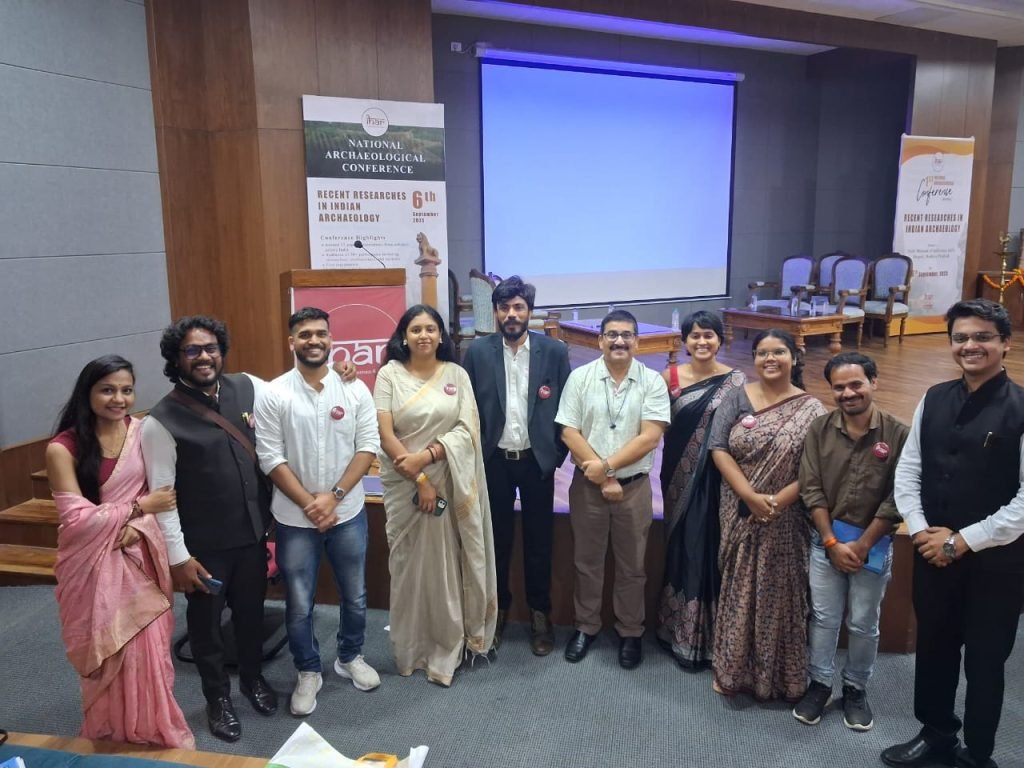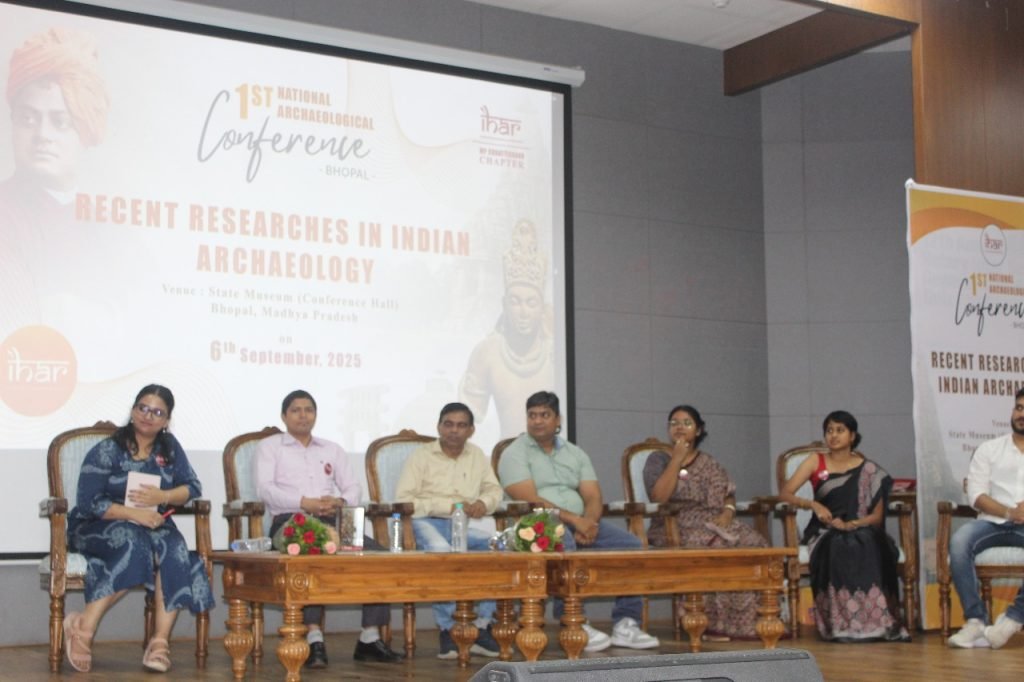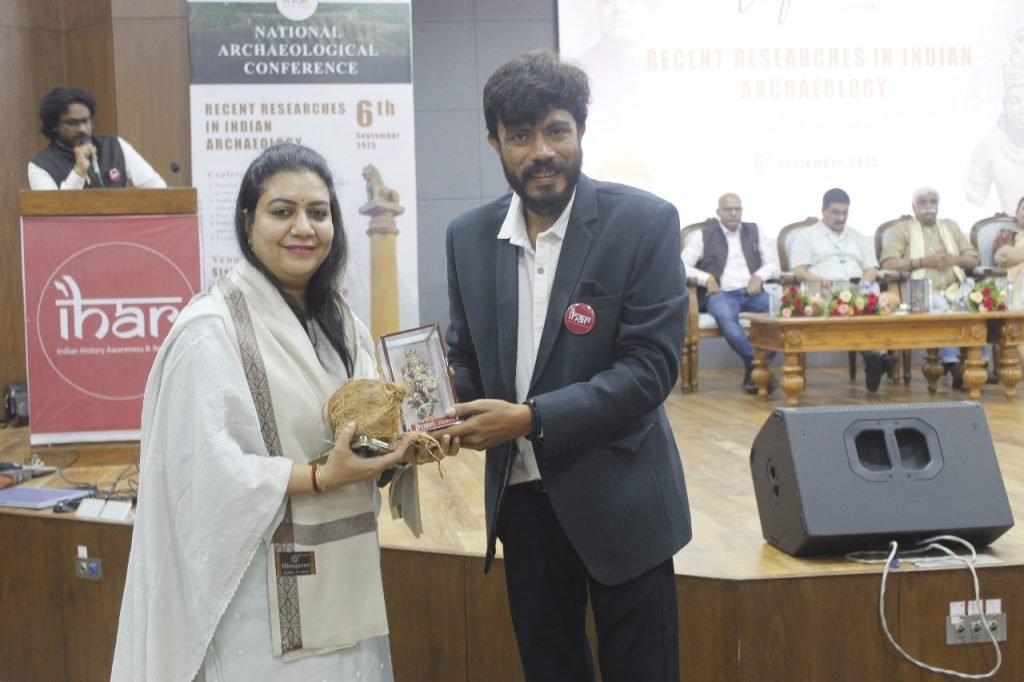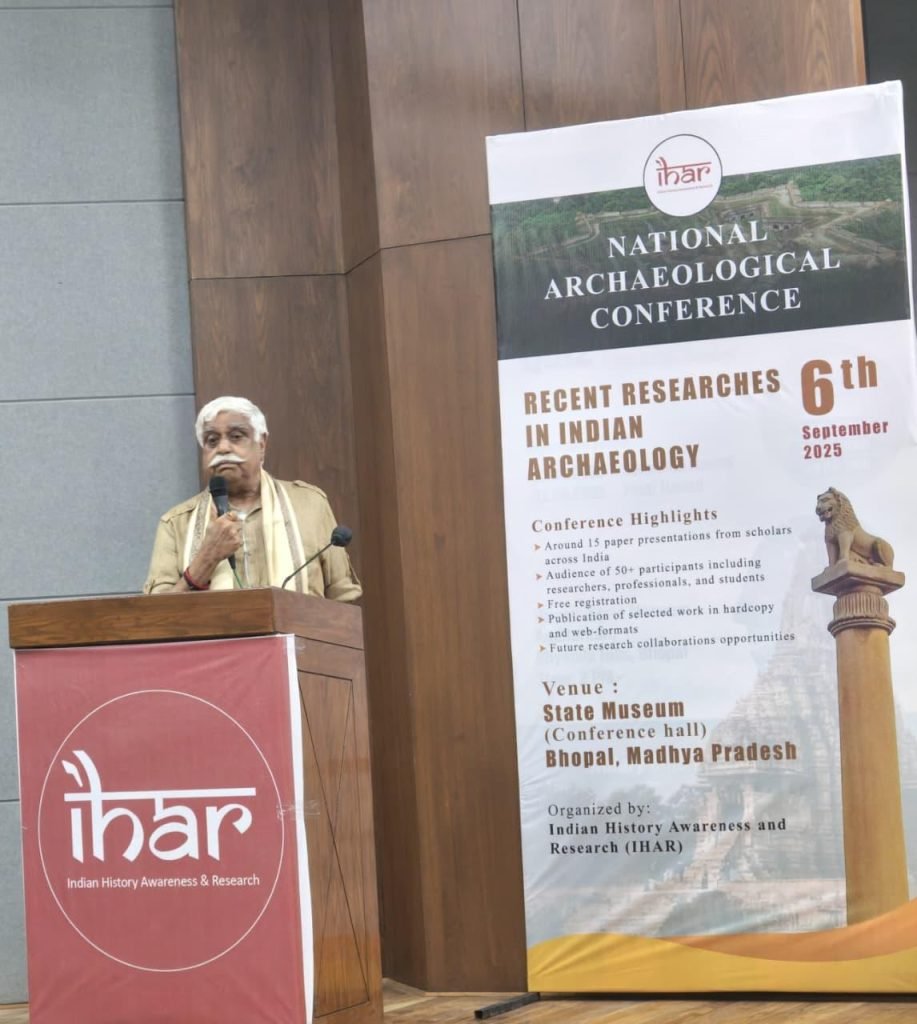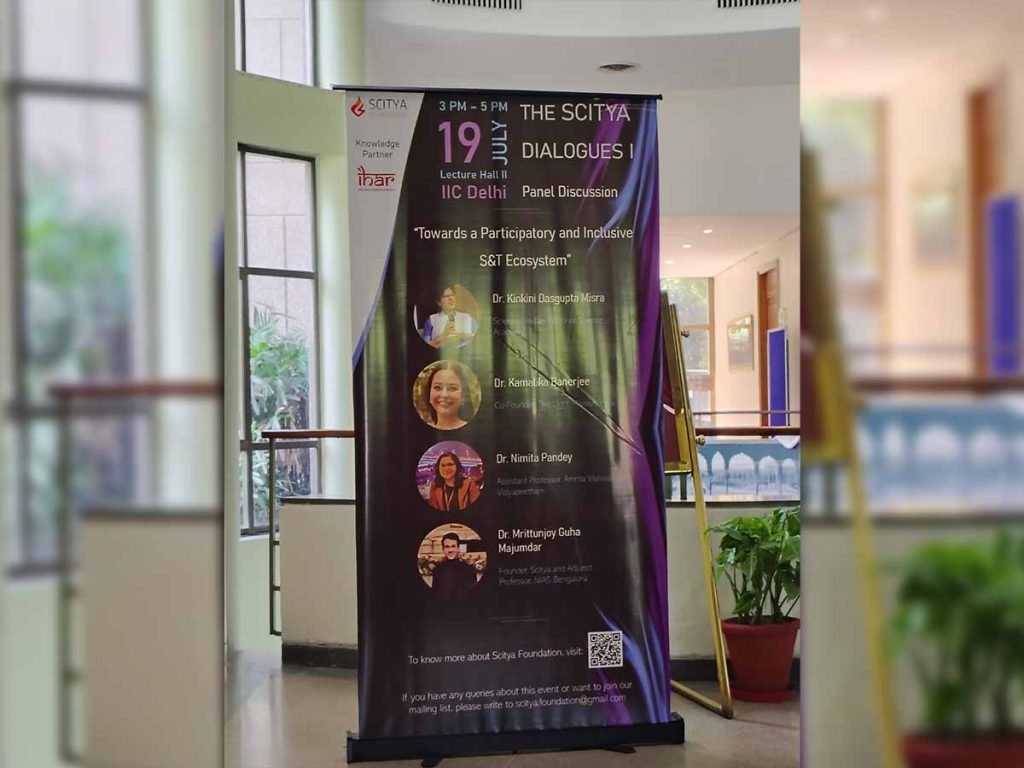Bhopal, September 6, 2025: The State Museum in Bhopal, the city of Raja Bhoja, became the epicenter of a significant academic advancement as it hosted the inaugural National Archaeological Conference alongside the formal launch of the Indian Historical Awareness and Research (IHAR) Madhya Pradesh and Chhattisgarh Chapter. The event, titled ‘Recent Researches in Indian Archaeology’, successfully convened a distinguished gathering of scholars, students, and enthusiasts, marking a pivotal moment for historical and archaeological studies in the region.
The day commenced with a traditional Invocation of knowledge, paying obeisance to Goddess Saraswati through a lamp-lighting ceremony and a SaraswatiVandana, followed by a captivating Bharatanatyam performance by Ms. Samriddha Sinha. She was accompanied by Mrs. Moumita Sinha, IHAR Convenor, North India. The auditorium was graced by the presence of eminent personalities from the fields of archaeology, history, and cultural studies, setting a tone of scholarly reverence and intellectual curiosity.The event was honoured by the presence of Chief Guest Dr.ShivakantBajpai, Superintending Archaeologist of the ASI Jabalpur Circle, and Special Guest Dr.Rachana Mishra, Head of the Department of History at PN College of Excellence, Bhopal. The event was further elevated byGuests of Honour including Dr. Manoj Kumar Kurmi (SA, ASI Bhopal Circle), Dr.KantiPawar (Archaeologist), Dr. R.P. Pandey (Retired Professor, Jiwaji University, Gwalior), Mr. Surya Sarathi Roy (Director of India Operations, IHAR), Dr. O.P. Mishra (Retired Deputy Director, State Archaeology, MP), Dr.GovindBatham (Professor), Dr.Namrata Yadav (Curator, State Museum, Bhopal), and Mr. Suresh Jain (Retired IAS Officer).
Following their felicitation, the dignitaries delivered insightful addresses, emphasizing the critical need for novel research, the reassessment of existing archaeological work, and strategies to enhance the current academic framework to better guide and inspire enthusiastic students. Their narratives, rich with field experiences, served as a profound inspiration for aspiring researchers.The pivotal moment of the inaugural session was the official announcement of the IHAR MP-CG Chapter by Mr. Surya Sarathi Roy, Mr. Shivam Dubey (Convenor, IHAR MP-CG Chapter), and Mr. Shivam Trivedi (Co-Convenor, IHAR MP-CG Chapter). The President of IHAR, Mr. SubrotoGangopadhyay, addressed the assembly via a video message, elucidating the organization’s origin, core objectives, and its overarching vision to promote historical awareness and rigorous research across India. This auspicious launch was commemorated with another powerful Bharatanatyam performance by Ms. Samriddha Sinha.
The post-lunch sessions transitioned into intense academic discourse with three technical sessions featuring the presentation of over fifteen research papers. Scholars and students from prestigious institutions nationwide, including Maharaja Sayajirao University of Baroda, Delhi University, University of Mumbai, and Deccan College, presented their findings. The sessions were adeptly chaired by Dr.ShivakantBajpai and Dr.Rachana Mishra (first session), Dr. Manoj Kumar Kurmi and Dr. R.P. Pandey (second session), and Dr.KantiPawar and Mr. Surya Sarathi Roy (third session). These presentations unveiled new perspectives and explored uncharted horizons in Indian archaeology, fostering a dynamic environment of learning. Each presentation was met with thoughtful queries and constructive feedback from the audience, providing invaluable suggestions for the researchers to refine their work.An interlude in the academic proceedings was provided by the screening of an insightful documentary, ‘The Unseen Bhojpur’, directed by Prashast and Shivaji Rai. The film captivated the audience, transporting them through the historical landscape and socio-religious essence of Bhojpur.The conference culminated in a highly enlightening panel discussion where the dignitaries engaged with pressing issues such as the challenges faced by young fieldworkers, the current state of archaeological research, the availability of fellowships, and emerging areas of academic inquiry. They fielded questions from the audience, addressing topics related to making archaeological studies more inclusive and accessible to a wider academic community.
The entire event was met with widespread appreciation from all attendees. The successful convergence of diverse minds from across the country truly upheld the essence of a national conference and significantly advanced IHAR’s objective of fostering a robust culture of historical and archaeological research. The conference not only provided a premier platform for young scholars to showcase their work but also established a vital new chapter for sustained academic collaboration and discourse in India.


 Events2 years ago
Events2 years ago
 Videos3 years ago
Videos3 years ago
 Events11 months ago
Events11 months ago
 Videos11 years ago
Videos11 years ago
 Events9 months ago
Events9 months ago

